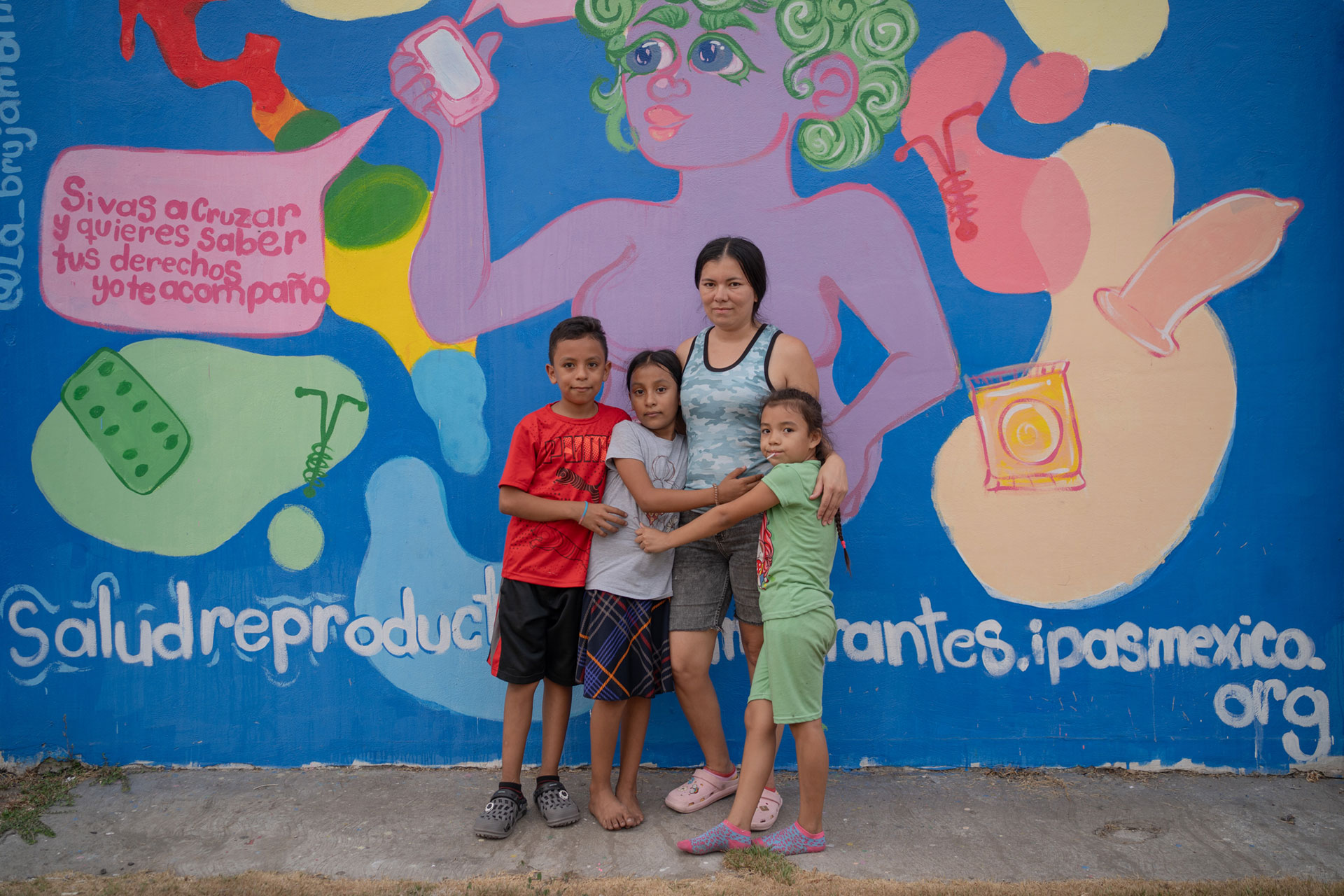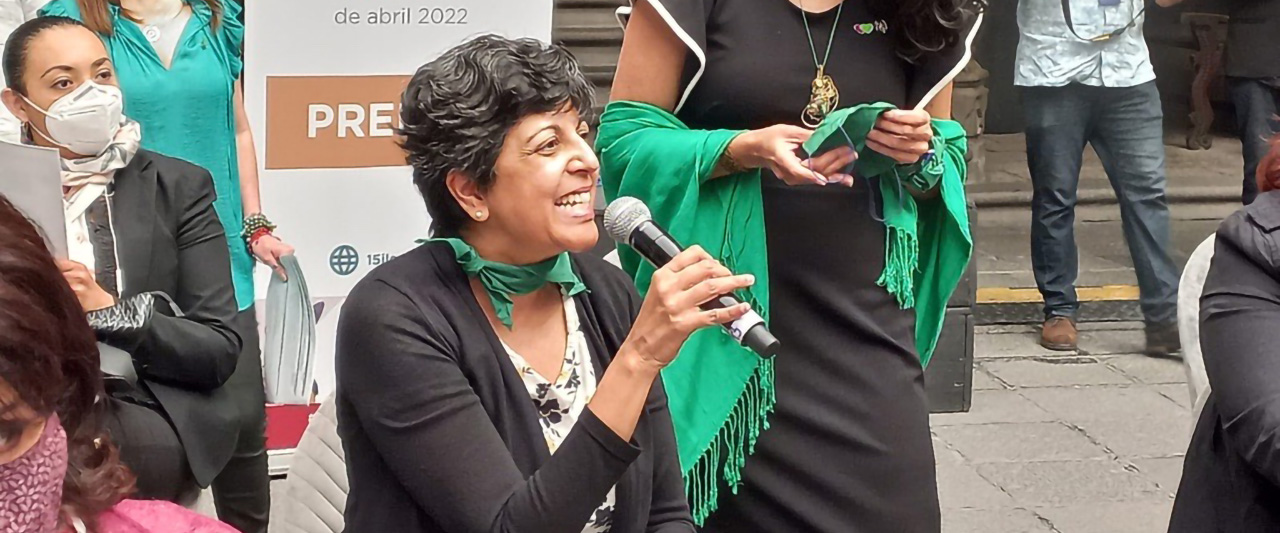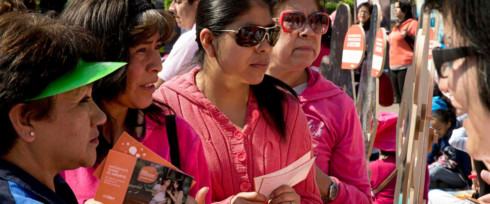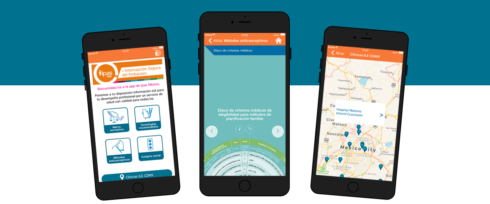Abortion access in Mexico is expanding as a growing advocacy movement gains traction. In 2007, Mexico City passed landmark legislation to make abortion legal during the first 12 weeks of pregnancy. Between 2019-2021, the states of Oaxaca, Hidalgo, and Veracruz made history by also legalizing abortion up to 12 weeks. Then on Sept. 7, 2021, Mexico’s Supreme Court declared that laws criminalizing abortion are unconstitutional. Specifically, the court declared Coahuila State’s penal code unconstitutional for penalizing people who choose to end a pregnancy. But the ruling signals that no person who has an abortion anywhere in Mexico should face prosecution—because it violates their constitutional rights to autonomy and reproductive freedom. Accordingly, every Mexican state where abortion remains criminalized should now modify their penal codes and legalize abortion to avoid standing in contradiction to the nation’s highest court.
Ipas has contributed to the movement for abortion rights in Mexico in many ways over the years, such as by educating court officials and government decisionmakers about reproductive rights, and by supporting campaigns for legal abortion in various states. Ipas will now work to ensure states change their laws to uphold reproductive rights—and to ensure health facilities have the training and support to offer high-quality abortion care.
Ipas has collaborated with Mexican state and federal Ministry of Health authorities, health-care professionals and civil society members since 1995 to improve reproductive health care throughout the country. Programs include work to strengthen health systems by training safe abortion providers and clinic staff, as well as by supporting health centers’ efforts to ensure high-quality abortion care. Ipas conducts community education to reduce abortion stigma and trains young advocates for sexual and reproductive rights. Ipas is one of the five Mexican organizations that comprise the National Alliance for the Right to Choose (Alianza Nacional por el Derecho a Decidir, or ANDAR), which works to promote women’s sexual and reproductive rights.

Pictured above: Saraí Gomez, a migrant from Honduras stands with her family in front of a street mural promoting Te Acompaño and the types of reproductive health information it provides. Photography by Victoria Razo.
Expanding abortion access along key migration routes
Each year, thousands of migrant women cross into Mexico. Many have acute reproductive health needs and don’t know how to find care. Ipas engaged diverse partners across Mexico to create the first Spanish-language chatbot designed especially for migrants. Called “Te Acompaño” (which means “I accompany you” in Spanish), the chatbot answers questions about sexual and reproductive health, including contraceptives and abortion. It also connects users with pharmacies that sell abortion pills—and with local facilities offering abortion and other reproductive health care.
Impact in 2024
people received abortion at Ipas-supported facilities
people received contraceptive services at Ipas-supported facilities
abortion access points supported

Mexico’s Supreme Court declares unconstitutional the regulation of abortion in the federal criminal code
In another historic victory for the Green Wave movement, Mexico’s Supreme Court ruled on Sept. 6, 2023, that the Federal Penal Code’s abortion regulations are unconstitutional, including the criminalization of individuals who have abortions and the health-care providers who perform them.
“This is huge progress in the recognition of reproductive rights,” says María Antonieta Alcalde, director of Ipas Latin America and the Caribbean. “We are very proud to be part of the Green Wave movement that has worked so hard to advance women’s rights.”
‘This is a fight without borders’
A U.S. state legislator working to protect abortion access is finding inspiration in Mexico’s abortion rights movement. Here’s our Q & A with Rep. Julie von Haefen of North Carolina

July 2021
Veracruz State makes abortion legal in first 12 weeks of pregnancy
“We applaud the government of Veracruz for recognizing women’s autonomy to make their own decisions about their reproductive lives. It remains unjust that in some parts of the country women can access their reproductive rights, including abortion, while in other places they must risk their lives and health with clandestine abortions or else face forced pregnancy.” — María Antonieta Alcalde, director of Ipas Latin America and the Caribbean

Ipas videos on abortion with pills attract almost a million views
Ipas Central America and Mexico (Ipas CAM) created two informational videos in Spanish on how women can safely self-manage an abortion using pills. The unexpected popularity of the videos shows just how badly this information is needed.
‘Everyone is welcome at my hospital’
Dr. Georgina Díaz Orozco is a doctor and Ipas-trained abortion provider in Guadalajara, Mexico—and one of the few providers in Jalisco state to offer abortion care after the first trimester. “It is very important that people have access to this care,” she says.











